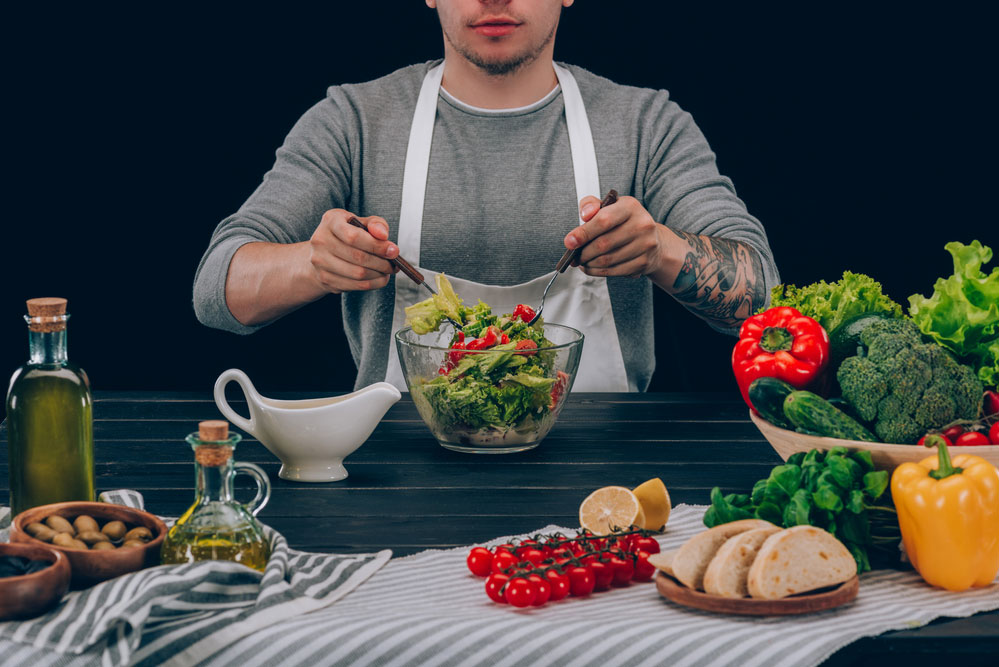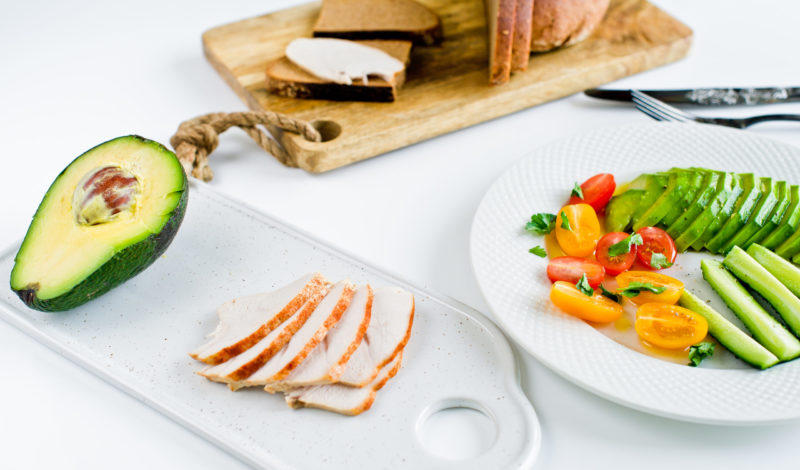Rumbling, pulling, bubbling or pinching, flatulence, diarrhea, constipation or just nasty stomach ache. If your bowels are going crazy, then [...]

Irritable bowel syndrome: The right diet
An irritable bowel syndrome manifests itself differently in each person affected. There are no general nutritional recommendations for irritable bowel syndrome that patients can follow. Which foods are the right choice for irritable bowel syndrome always depends on the individual circumstances and the severity of the disease as well as possible food intolerances. It is important to find out which foods or circumstances are potential triggers for the onset of irritable bowel symptoms. In addition to stress, worries, lack of exercise and sleep, diet often triggers symptoms of irritable bowel syndrome.

The right diet for irritable bowel syndrome
So what do you eat when you have irritable bowel syndrome? The very first step in gastrointestinal problems should be a thorough examination by a doctor. Even a balanced and stomach-friendly diet does not alleviate irritable bowel syndrome if other factors trigger the symptoms or if another disease is present. A stool examination in the laboratory like the INTEST.pro from BIOMES can give indications if and which tendencies to intolerances or allergies your intestines show. If organic causes and other chronic intestinal diseases are excluded, the next step is to keep a detailed nutrition diary. In this diary, you as the affected person record all physical reactions to certain foods as well as various information. Take note of…
(with indication of time)
This makes it possible to identify the causes of irritable bowel syndrome through diet. This is because irritable bowel syndrome is characterized by hypersensitivity to certain stimuli. Depending on the inclination and sensitivity of the intestine, certain foods can therefore promote intestinal inflammation. Likewise, genetic factors, environmental influences, psychological factors or the interaction between the personal microbiota (intestinal flora) and the immune system can play a role in intestinal complaints.
Diet for Irritable Bowel Syndrome: The Low-FODMAP Diet
If an intestine does not function as it should, it is often not able to sufficiently break down food into its individual parts and decompose them. The remaining substances then react in the colon with the intestinal bacteria present there. Often gases are produced which can cause flatness and pain. Some of the so-called FODMAPs also bind water in the large intestine causing diarrhea.The term FODMAP is made up of the initial letters of the substances that are considered to cause many intestinal complaints:
- Fermentable Oligosaccharides
- Disaccharides
- Monosaccharides
- And Polyols
All these substances are carbohydrates or sugar alcohols, which are constituents of many foods. For example, they are found in wheat and rye bread, dairy products such as yoghurt and cream, and some fruits such as pears, apples and cherries.
If FODMAPs are suspected of causing symptoms of irritable bowel syndrome, you should adjust your diet accordingly. It is advisable to start with a low-FODMAP diet first, in which you completely omit all FODMAP-containing foods from your diet for at least four to six weeks. In this way, the stomach and intestines can become weaned. If the symptoms improve during this time, an intolerance to one of the substances is quite likely. You can then try out the various foods individually at appropriate intervals and test them for tolerance.
Irritable bowel syndrome and nutrition: What are the rules?
Nutrition can influence the stomach and intestines in many ways. If you suffer from irritable bowel syndrome, you should select the foods on your diet based on your personally tested tolerance limits. Often it is the amount of food you eat that decides whether you get gastrointestinal complaints or not.The following behavioural tips can reduce the symptoms of irritant bowel syndrome:
- The body can digest several small meals better than a few meals that are very rich and greasy.
- Extensive chewing and a relaxed meal without stress and hectic make digestion easier.
- Those affected should avoid caffeine and alcohol.
- A lot of liquid is very important for irritable bowel syndrome – water and unsweetened fruit and herbal teas are best.
- Food that is too spicy or very salty promotes irritable bowel syndrome. A mild diet is recommended.
However, irritable bowel patients who wish to change their nutrition should not do so on their own but under medical supervision. It is also important that those affected are aware that an appropriate diet does not cure the disease, but can only alleviate its symptoms.
Diagnosis of irritable bowel syndrome: nutrition tips thanks to stool test
Certain disturbances in digestion, calorie utilization, immune strength, vitamin synthesis as well as tendencies to intolerance and in the general state of the intestinal flora – an examination of the stool can provide information about this. With INTEST.pro an intensive analysis of the stool is possible. The experts of BIOMES use a modern biotechnological procedure1 to get to the bottom of the cause of intestinal complaints.
Based on the personal microbiota, BIOMES prepares an individual online dashboard. In addition to a detailed analysis and evaluation, the dashboard also contains recommendations that can be helpful for nutrition if, for example, there is a suspicion of irritable bowel syndrome.
1. Cho I, Blaser M J. The human microbiome: at the interface of health and disease. Nature Reviews Genetics 2012:13, 260-270.


